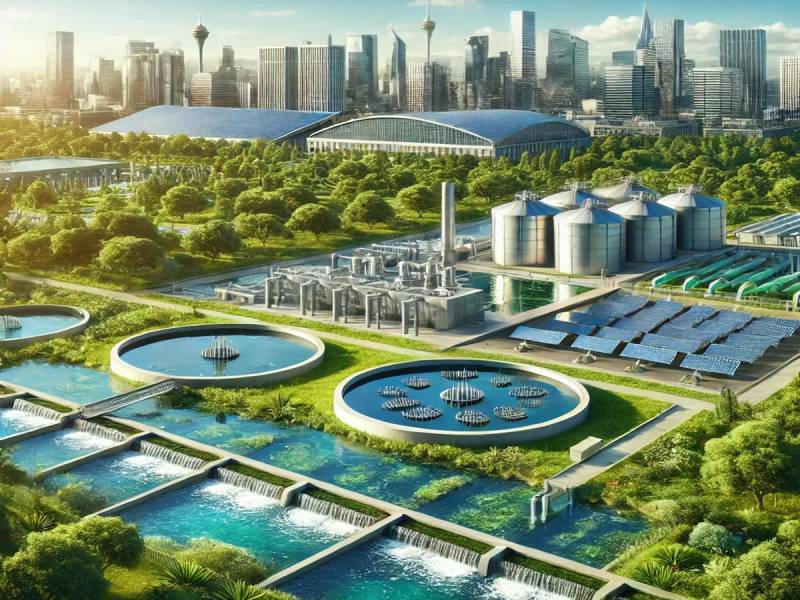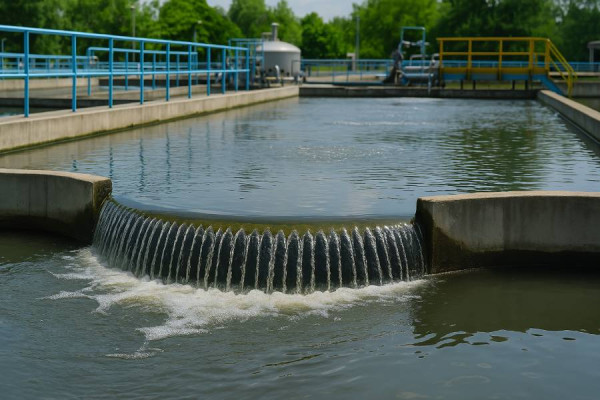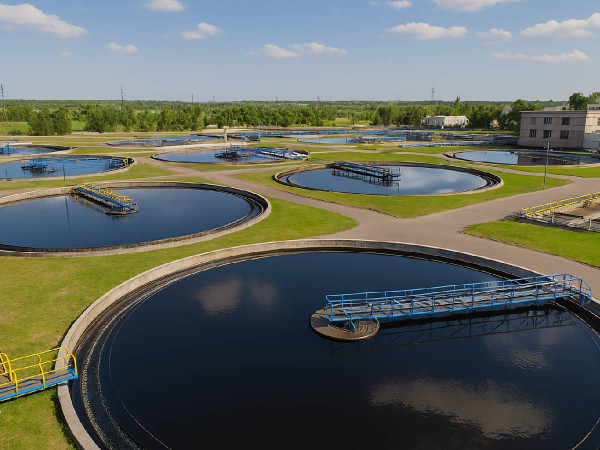News & Blogs
Wastewater Engineering: The Unsung Hero of Sustainable Urban Development

When we think about sustainable urban development, images of green spaces, solar panels, and smart buildings often come to mind. Yet, lurking behind the scenes is a critical discipline that makes our cities healthier and more resilient: wastewater engineering. This field not only safeguards public health but also plays a pivotal role in environmental protection and resource recovery. In this blog, we explore what wastewater engineering entails, why it is so important, and how it drives sustainable urban development.
What Is Wastewater Engineering?
Wastewater engineering is the branch of civil and environmental engineering that focuses on the collection, treatment, and disposal or reuse of wastewater. Wastewater can come from households, industries, and commercial establishments. Its treatment involves a series of physical, chemical, and biological processes designed to remove contaminants, ensuring that the water can either be safely returned to the environment or reused for other purposes.
Key Functions of Wastewater Engineering
- Public Health Protection: Effective treatment reduces pathogens and contaminants, preventing the spread of waterborne diseases.
- Environmental Conservation: Proper treatment minimizes the release of harmful substances into natural water bodies, protecting aquatic ecosystems.
- Resource Recovery: Modern techniques enable the recovery of energy and valuable by-products, like fertilizers, from wastewater.
- Sustainable Urban Growth: Integrated wastewater management systems support urban expansion by ensuring clean water is available and environmental impacts are minimized.
The Evolution of Wastewater Engineering
Historically, cities faced significant challenges in managing waste due to rapid urbanization. Before modern wastewater treatment systems, untreated sewage was often discharged directly into rivers or lakes, leading to severe public health crises and environmental degradation. Over time, as cities grew and scientific understanding advanced, engineers developed treatment processes that could significantly reduce pollutants and transform waste into resources.
Today, wastewater engineering has evolved into a high-tech discipline where innovation and sustainability go hand in hand. With advancements in technology and a growing focus on environmental stewardship, modern wastewater treatment facilities not only clean water but also harness energy and recover nutrients, turning a potential liability into a valuable asset.
How Wastewater Engineering Supports Sustainable Urban Development
1. Protecting Public Health
One of the most critical roles of wastewater engineering is the protection of public health. By efficiently removing pathogens and contaminants from wastewater, these systems prevent the spread of diseases such as cholera, typhoid, and hepatitis. In cities where population density is high, the benefits of these systems become even more pronounced. Municipalities that invest in robust wastewater treatment infrastructure see reduced incidences of waterborne illnesses and a higher overall quality of life for their residents.
2. Environmental Preservation
Wastewater treatment plants are essential in preventing pollution of rivers, lakes, and oceans. When untreated wastewater is released into the environment, it can lead to eutrophication—a process that depletes oxygen in water bodies, harming fish and other aquatic life. By treating wastewater before discharge, engineers help maintain the ecological balance of our natural water systems.
Moreover, modern wastewater engineering often includes advanced methods for reducing greenhouse gas emissions. For example, anaerobic digestion processes not only treat waste but also produce biogas, which can be used as a renewable energy source. This dual benefit enhances both environmental quality and energy sustainability.
3. Resource Recovery and Circular Economy
A breakthrough in wastewater engineering is the shift towards a circular economy. Traditional treatment methods focused solely on cleaning water, but new technologies are enabling the recovery of valuable resources:
- Energy Production: Anaerobic digestion converts organic waste into biogas, which can power treatment plants or be fed into local energy grids.
- Nutrient Recycling: Treated sludge contains nutrients like nitrogen and phosphorus, which can be processed and reused as fertilizers in agriculture.
- Water Reuse: With increasing water scarcity, treated wastewater is being repurposed for irrigation, industrial processes, and even as potable water after further treatment.
These innovations not only reduce waste but also transform wastewater into a resource that supports both urban and agricultural sectors.
4. Economic Benefits and Urban Resilience
Investing in modern wastewater engineering has significant economic benefits. Well-designed treatment systems can reduce the costs associated with water pollution, health care, and environmental remediation. Moreover, as cities face challenges related to climate change and population growth, resilient wastewater infrastructure becomes a critical component of urban planning. It enables cities to better withstand environmental shocks and ensures a consistent supply of clean water even under adverse conditions.
Case Study: Wastewater Management Projects
For example, Civil Tech has prepared detailed engineering study and design reports for wastewater management projects in areas such as:
- Attaria Bazar in Godavari Municipality
- Chaumala Bazar
These projects highlight how tailored wastewater treatment solutions can address the specific needs of urban communities. By incorporating local environmental factors and population density, the engineers design systems that are both efficient and sustainable.
Integrating Traditional and Innovative Approaches
Civil Tech’s approach combines conventional engineering principles with modern innovations. Their methodologies not only ensure that wastewater is treated to meet regulatory standards but also focus on resource recovery and sustainability. This integration exemplifies the shift in wastewater engineering from being a purely remedial process to becoming a proactive element in urban sustainability.
Challenges and Opportunities in Wastewater Engineering
Despite its many benefits, wastewater engineering faces several challenges that need to be addressed:
1. Infrastructure Investment
Building and maintaining advanced wastewater treatment facilities requires significant investment. Many municipalities, especially in developing regions, struggle with budget constraints. However, the long-term benefits ranging from public health improvements to environmental protection and resource recovery often outweigh the initial costs.
2. Rapid Urbanization
As cities continue to expand, the pressure on existing wastewater systems increases. Urban planners and engineers must design systems that can scale with growing populations. This means not only expanding capacity but also incorporating flexibility for future technological advancements.
3. Regulatory and Environmental Compliance
Wastewater treatment is highly regulated to ensure that discharged water meets environmental standards. Adhering to these regulations requires ongoing monitoring, technological updates, and sometimes complex permitting processes. Collaboration between engineers, policymakers, and the community is essential to streamline these efforts.
4. Public Awareness and Education
For wastewater engineering to be fully appreciated, there needs to be greater public understanding of its importance. Many citizens remain unaware of the connection between effective wastewater management and overall urban sustainability. Public education initiatives can bridge this gap, encouraging community support for necessary investments in infrastructure.
The Future of Wastewater Engineering
Looking ahead, wastewater engineering is poised to become even more innovative. Emerging technologies—such as smart sensors, artificial intelligence, and advanced treatment chemicals are being integrated into treatment plants to improve efficiency and reduce costs. These technologies can:
- Monitor real-time performance to detect issues before they become major problems.
- Optimize energy consumption by adjusting treatment processes based on demand.
- Enhance resource recovery by fine-tuning the separation and extraction of valuable materials from wastewater.
Furthermore, as the global community becomes more committed to sustainability, wastewater engineering is expected to play an increasingly central role in achieving water security and environmental protection goals. This shift is not only driven by technological progress but also by a growing recognition of the interconnected nature of urban systems.
How Wastewater Engineering Benefits Everyday Life
For the average city dweller, the benefits of wastewater engineering are both direct and indirect. Here’s how this unsung hero of urban development touches everyday lives:
- Cleaner Drinking Water: By ensuring that wastewater is properly treated, cities protect their drinking water sources from contamination.
- Reduced Health Risks: Effective treatment lowers the incidence of waterborne diseases, meaning fewer outbreaks and healthier communities.
- Job Creation: The design, construction, and maintenance of treatment facilities create jobs and spur economic activity.
- Energy Savings: The energy produced from biogas recovery can help lower utility costs and reduce reliance on fossil fuels.
- Enhanced Quality of Life: With cleaner environments and safer public health, residents enjoy a higher quality of life and increased confidence in their local infrastructure.
Conclusion: Embracing the Unsung Hero
Wastewater engineering may not always be in the spotlight, but its impact on sustainable urban development is profound. From protecting public health and preserving the environment to driving economic growth and resource recovery, this field is a cornerstone of modern infrastructure. As cities around the world including those in Nepal—continue to grow and face new challenges, innovative wastewater management systems will be essential in building resilient, sustainable communities.
Organizations like Civil Tech Pvt. Ltd. are at the forefront of this transformation. By applying both traditional engineering expertise and modern, sustainable practices, they are turning wastewater from a potential hazard into a powerful resource. In doing so, they help ensure that our cities remain safe, clean, and thriving for generations to come.
Investing in wastewater engineering is not just about treating water it’s about investing in our future. As technology advances and urban needs evolve, the field will continue to innovate and adapt, proving that sometimes the most crucial heroes are the ones working behind the scenes.



